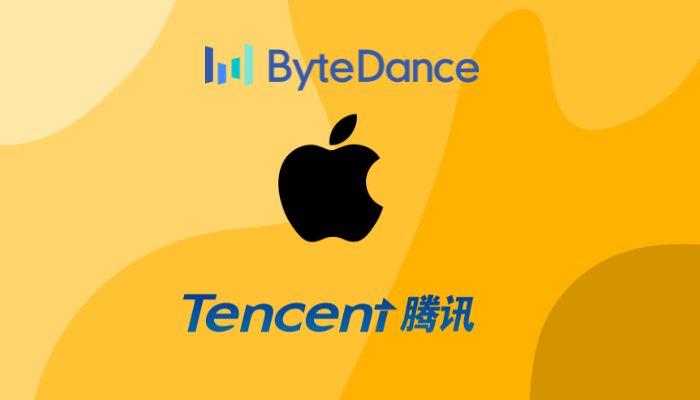
Apple is reportedly in discussions with Tencent and ByteDance to integrate their artificial intelligence (AI) models into iPhones sold in China.
Reuters reported that the talks between the iPhone maker and the two tech giants are in the initial stage of exploring the possibility of AI integration into iPhones in China.
Apple has begun to incorporate OpenAI’s ChatGPT into its devices, and Siri can now tap into the chatbot’s knowledge. Since ChatGPT is not available in China, Apple needs local partners to implement similar AI features.
Notably, according to China's regulatory requirements, generative AI services can go public only after government approvals are obtained. This pressure has driven Apple to find local AI service providers, especially its declining market share in the country.
Apple’s successful partnership with Tencent or ByteDance could expand the footprint of Apple's AI services in China. The country's AI field is crowded, with many large tech firms and startups launching their own AI models.
Apple has also been in talks with Baidu, but those talks have hit a snag due to technical issues and disagreements over the use of iPhone users' data to train AI models.
The absence of AI capabilities in the latest iPhones sold in China has been a major setback for Apple. The company faces growing competition from domestic brands like Huawei, which recently launched the Mate 70 series featuring AI capabilities powered by its proprietary large language model.
This year, Apple's smartphone sales in China slipped 0.3% during the third quarter compared to the previous year, while Huawei's sales surged 42%.
















